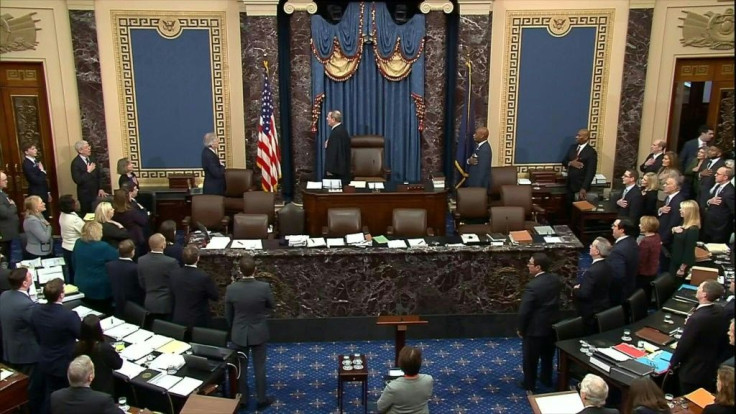Trump Impeachment: Any Way For Democrat Senators To Remove President? Well, There Might Be One Longshot

President Donald Trump is expected to be acquitted by a Republican-controlled Senate next week, but Democrats may have a Hail Mary: a secret ballot.
A secret ballot is unlikely, due to a constitutional provision called the journal clause which allows 20 or more senators to demand a recorded vote. Senate Majority Leader Mitch McConnell, R-Ky., would no doubt gather 20 senators, putting an end to any attempt to conduct a secret vote.
At the same time, political commentators have discussed the idea. In a December editorial for CNN, Robert Alexander, a professor of political science at Ohio Northern University, said that a secret ballot could allow senators to better act in the interest of the country. Republican senators might be willing to vote to impeach the president if they are able to do so anonymously and not have to worry about public attacks from Trump.
Former Arizona Sen. Jeff Flake has said that as many as 35 Republican senators would vote for Trump’s impeachment if it were conducted by secret ballot.
Alexander did point out that a secret ballot has drawbacks, as it would make the impeachment process less transparent and senators would not be as accountable for their vote.
Sen. Chris Murphy, D-Conn., has said in December that a number of his GOP colleagues would consider voting for impeachment but dismissed the idea of a secret ballot.
"I don't buy this secret ballot thing. If there was a secret ballot, there'd still be only a handful of them that would vote to impeach this guy," Murphy said on the MSNBC “Morning Joe” program, referring to Trump.
The Senate is expected to vote Wednesday on the two articles of impeachment against Trump -- abuse of power and obstruction of Congress -- after a vote for witnesses failed. Abuse of power refers to Trump’s pressuring of Ukrainian President Volodymyr Zelensky into conducting an investigation of Hunter Biden’s activities in the country. Hunter Biden is the son of Trump’s domestic political rival, former vice president Joe Biden.
Obstruction of Congress refers to Trump’s unwillingness to cooperate with the impeachment inquiry and his order to current and former executive officials to not comply with congressional subpoenas.
The impeachment process began on Sept. 24, after an anonymous whistleblower complaint that Trump had tried to solicit a personal favor from a foreign government.
© Copyright IBTimes 2024. All rights reserved.





















